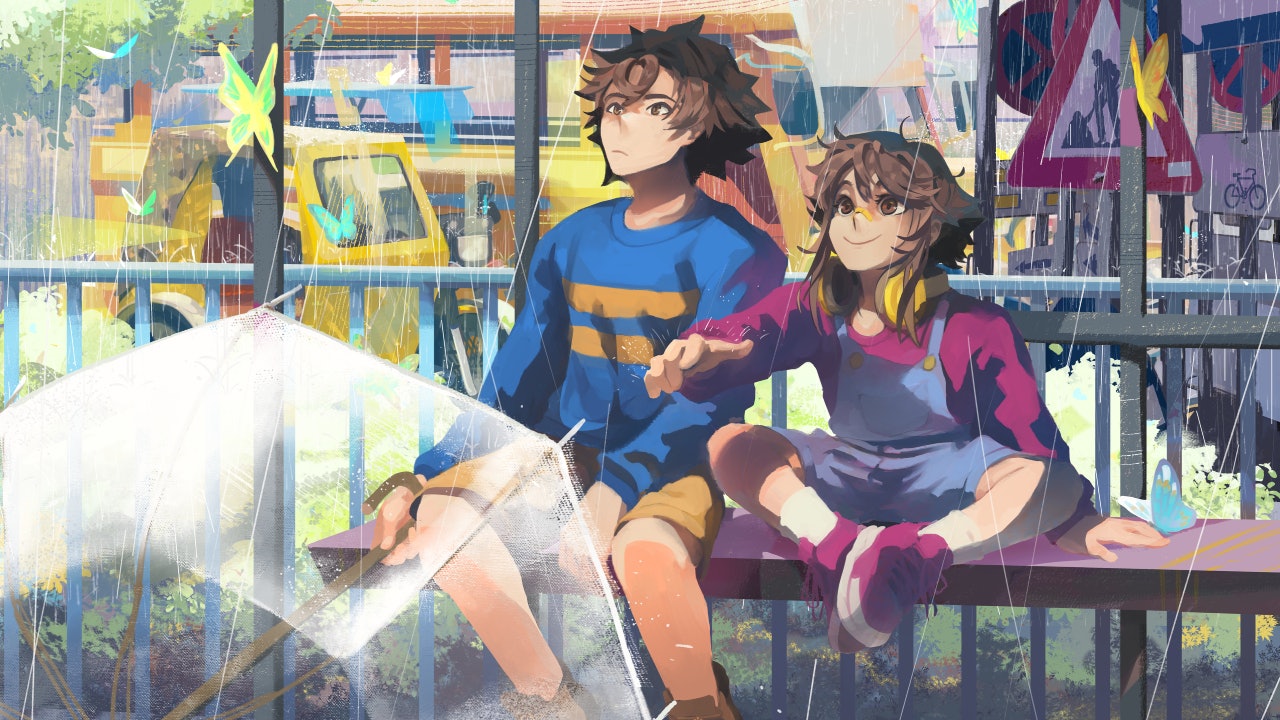
When Life is Strange first released in 2015, the angsty Twin Peaks-esque adventure captured hearts for feeling fresh and new. Seven years later, while its upcoming entry, Life is Strange: Double Exposure, promises to recapture lightning in a bottle for a second time by dragging its stalwart protagonist back into frame from her hard-earned bittersweet ending(s), a spiritual successor has quietly cropped onto the scene to push the envelope on the medium even further.
From developer Polychroma Games, Until Then is a supernatural, pixel art, side-scrolling adventure set in the Philippines. You play as Mark Borja, a slacker high school student who coasts by in his classes, much to the chagrin of his classmates. Much of the narrative feels like your typical coming-of-age romp in the stylings of a character-focused game like Night in the Woods. Like Life is Strange, Until Then’s gameplay focuses on making a series of decisions that deepen your relationships and define Mark as a person. But before too long, Until Then takes a turn for the weird.
A chain of unorthodox natural disasters take on a supernatural bent, causing Mark and his friends to experience déjà vu, memory lapses, and even have loved ones disappear on them. Mark must uncover the truth behind the phenomenon plaguing his hometown while juggling the qualms of high school life — potentially finding some room for growth along the way.
Doom-scrolling never felt so good
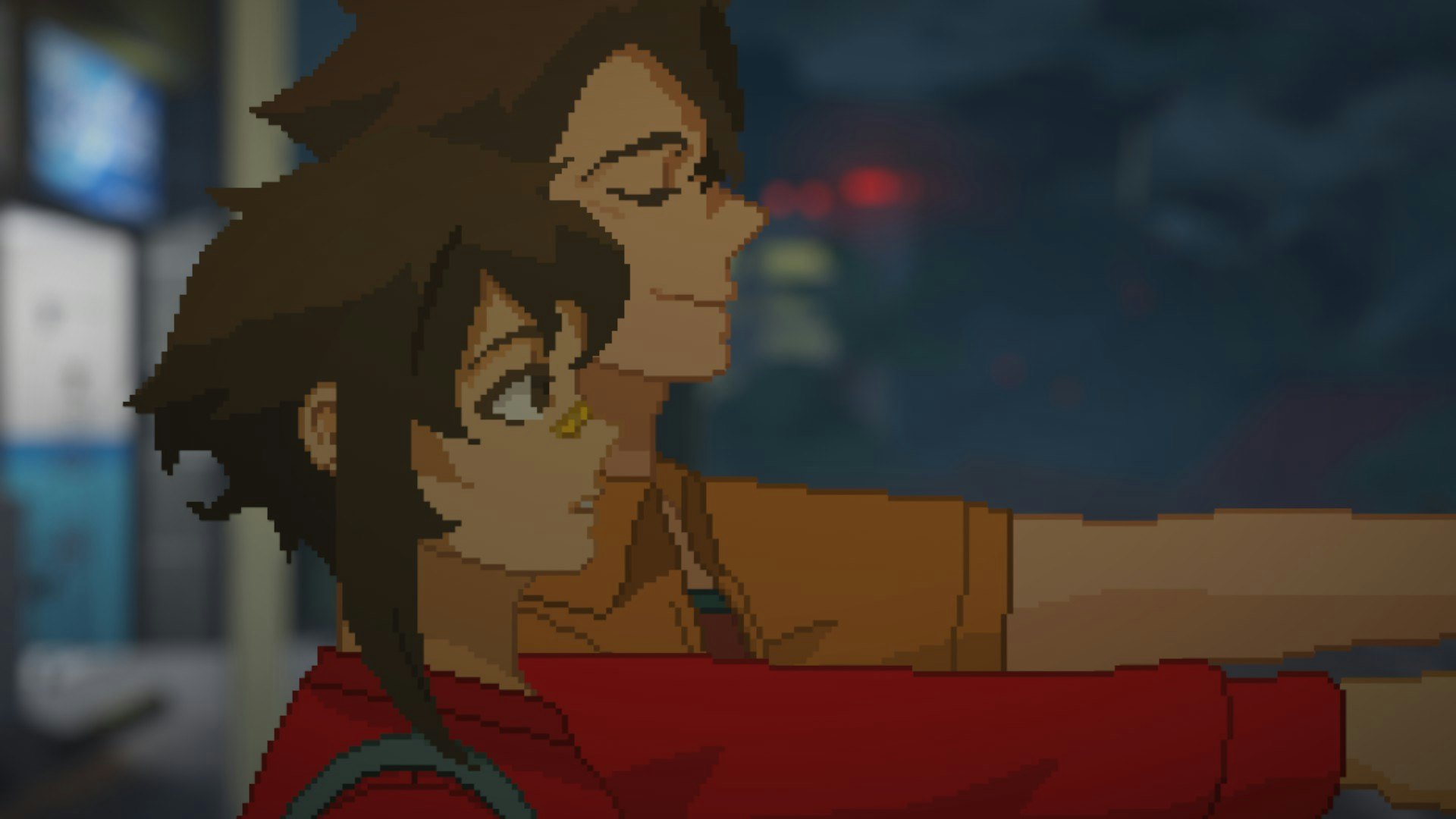
What’s most remarkable about Until Then is how it seamlessly integrates humanity’s digital appendage — social media and instant messaging — as a primary gameplay mechanic. In the past, angsty, coming-of-age supernatural tales like Life is Strange implemented text messaging as a passive narrative device that fleshed out relationships and accentuated supernatural happenings. Until Then takes texting to the next level by actively mixing it into gameplay to shed light on both its characters and the world around them.
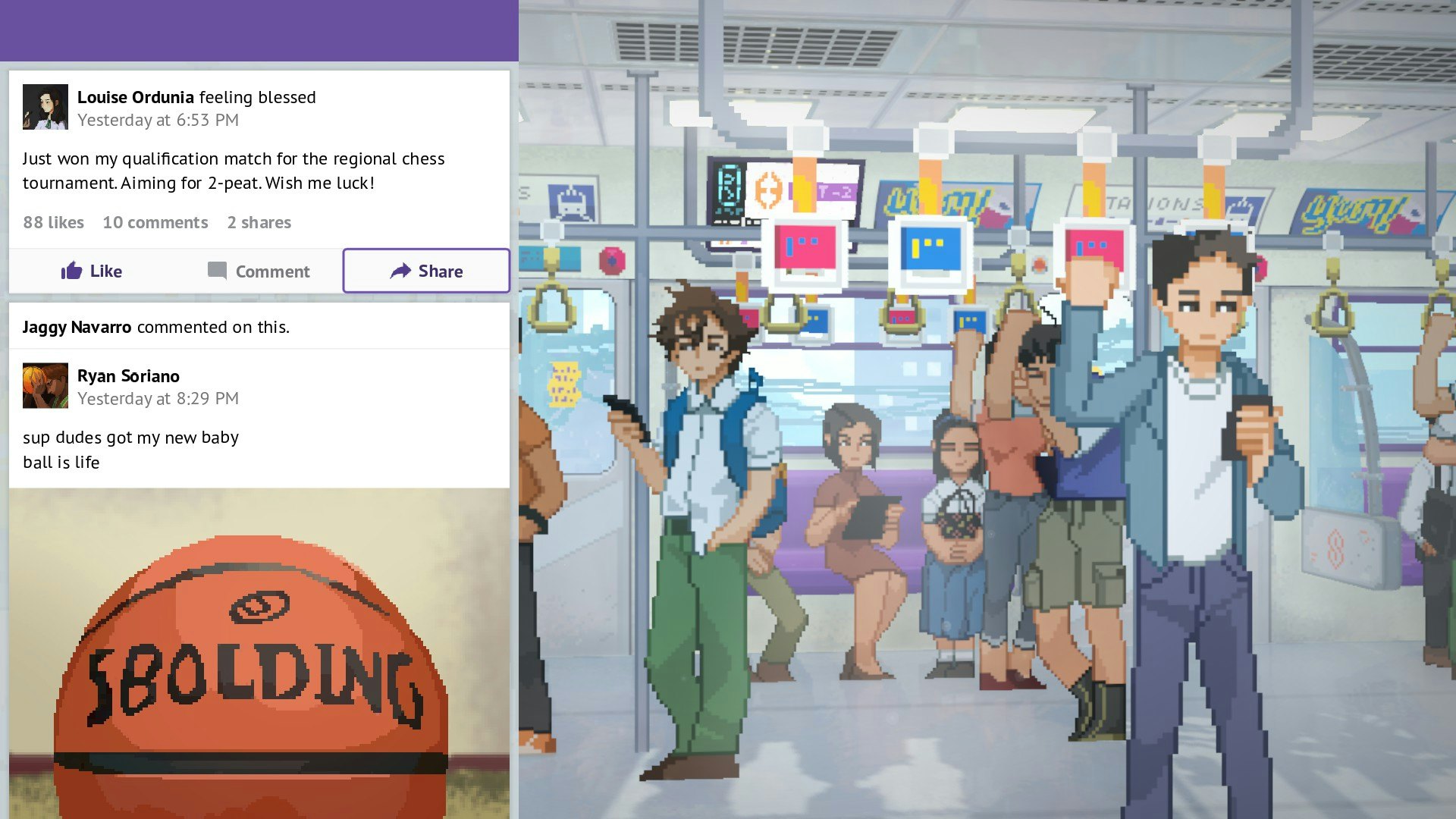
Until Then’s in-game social media, which mirrors real-life platforms like Facebook and Reddit, lets you lurk on the profiles of friends, classmates, and strangers or be a terminally online gremlin that likes, comments, and shares every post on your timeline. What’s more, you can click down the rabbit hole of articles shared on web pages to uncover clues about the supernatural goings bubbling under the story and unearth clues about its characters via online interactions and their digital footprint.
Not only will you be tasked with making tough on-the-spot decisions with friends and strangers, but you’ll also routinely be charged with texting friends in Until Then’s in-game version of Facebook Messenger. Here, you must juggle the priority of responding to different group chats or direct messages — be they platonic or romantic — of Mark’s texts and wait in agony as the recipient takes their pregnant pause to a third trimester to respond or flat-out leave you on read.
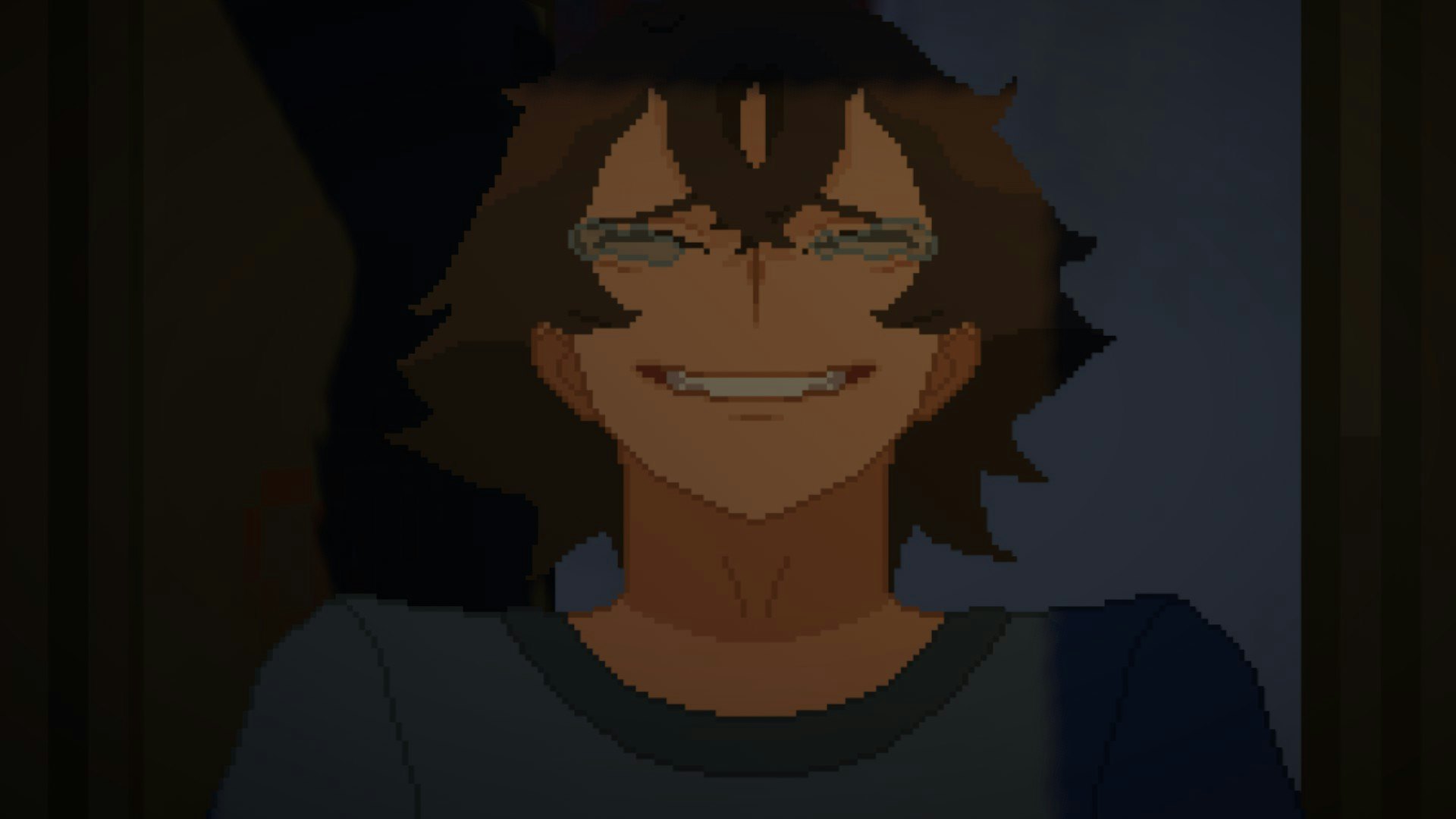
A story worth crying and trying over again
At the heart of Until Then is a devastating tale about trauma and loss filled with sharp writing that will stun you just as often as its gorgeous anime/indie film-inspired visuals do. Visually speaking, Until Then’s mesh of hand-drawn pixel art characters wandering around lush 3D animated spaces feels distinctly akin to pixel remaster games like Live A Live and ensemble romps like 13: Sentinels: Aegis Rim. Story-wise, the game evokes Life is Strange (or Anohana for anime fans) while being very much its own thing.
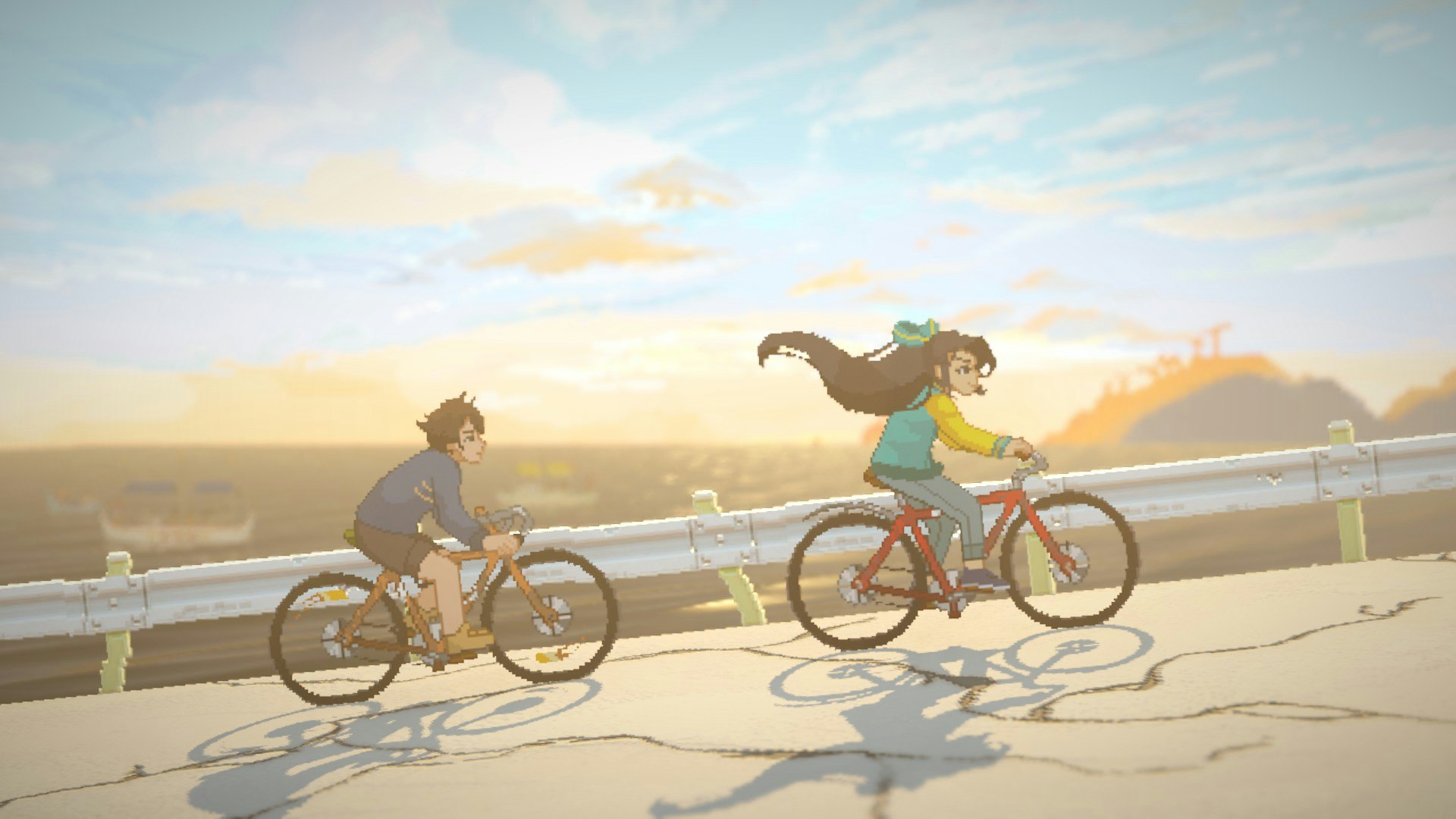
While the supernatural happenings in the background of Until Then don’t become fully apparent until the latter half of the game, the main crux of its story tackles how characters deal with the aftermath of loss — be it familial, romantic, or childhood friendships drifting out of each other’s orbit. Whereas Life is Strange had players desperately fight to prevent what seems to be the end of the world for its ensemble cast, Until Then sees its diverse cast picking up the pieces of their apocalypses.
These thematic underpinnings are further epitomized by the game’s sharp take on visual novel’s “true endings” and players' willingness to continue fighting the good fight to reach a new outcome. The narratively similar gameplay routes are giving Nier Automata. What’s more, Until Then achieves all this while reaching out of the screen and putting players in an identical déjà vu dilemma with a false credit sequence.
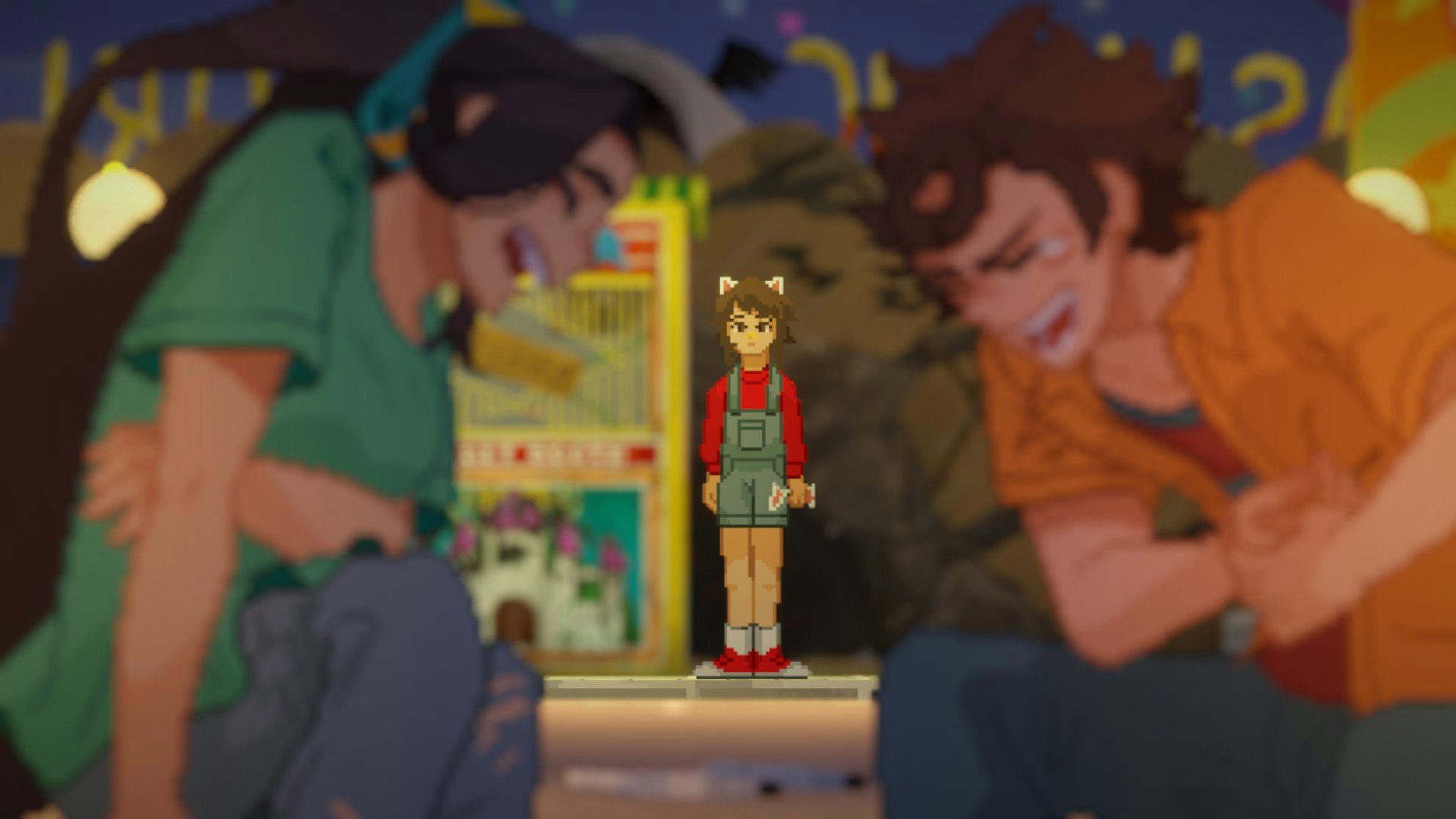
Until Then isn’t just a gaming intermezzo for Life is Strange: Double Exposure. It’s an amuse-bouche of a supernatural coming-of-age adventure game that raised the bar to loftier heights for its spiritual sibling to clear come October 29.







